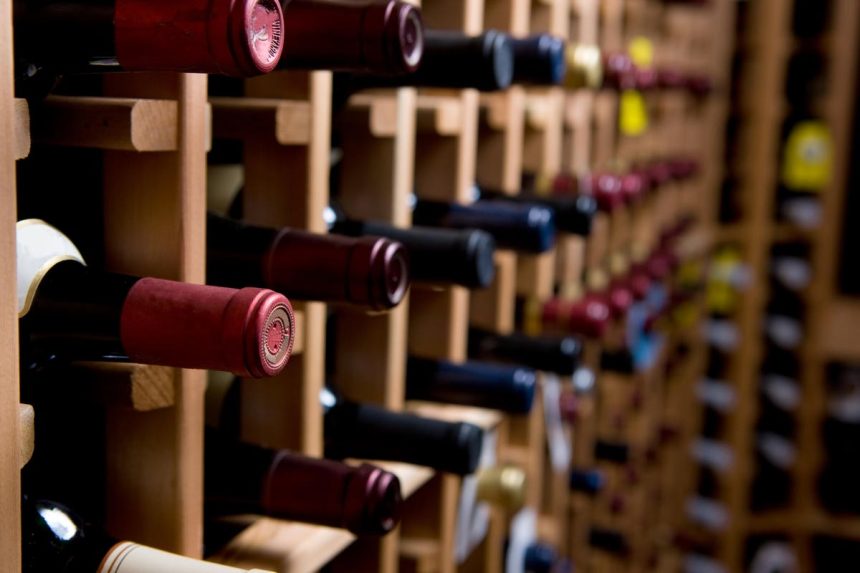Alexander Westgarth is the founder and CEO of WineCap, an investment platform that makes wine investment affordable, transparent and simple.
Fine wine is a fascinating asset. There’s nothing as mysterious as the oaky red flavor of a sultry Burgundy. Nor as sharp and refreshing as a zingy green Rueda. Fine wine has many unique investment benefits too. In my experience, it can stabilize your portfolio, grinding down the brakes to smooth out a roller coaster performance. A few good bottles can also prop up growth, drawing value from alternative sources to really flesh out profitability.
In this article, I’m going to dig into the delicious benefits of fine wine, while warning new investors about the potential risks or pitfalls. After all, the best wine should be enjoyed responsibly.
1. It shouldn’t be the star of the show.
Think of investing as a performance. A lively Broadway musical. Depending on your investor profile, most likely stocks will be the star of the show, taking up around 50% of your funds. These company shares will sparkle and dazzle, absorbed in the limelight.
Second to stocks will probably be the bonds, basking in about 30% of the allocations. Imagine these as supporting acts, helping to balance out the shortcomings of the star, like volatility or risk.
That leaves around 20% for real estate, hedge funds, cash and alternatives. Fine wine is an alternative asset, and for most portfolios, that’s where it should stay. It offers a steady trickle of value and inflation resistance to complement the main holdings.
In short, fine wine should be far away from the main stage. It’s what sparkles in your hand as you sit back and enjoy the show.
2. Think of fine wine as a recession hedge.
Fine wine is a remarkable inflation hedge. Remember this as you glance over market news and updates every day. We can see this in action right now.
We can see this in action right now. The Liv-ex 1000 is an index of the top 1000 fine wines. Over the past six months, the price of the Liv-ex 1000 has shrunk by 6.8%, meaning the value of fine wine has decreased. Meanwhile, the S&P 500 has ballooned by 12.1%, so stocks are trending upward.
But stocks don’t always do well. Over the first nine months of 2022, the stock market wobbled. The S&P 500 dwindled downward, losing 23.7% in value by the end of September. However, in perfect contrast, the value of fine wine (according to Liv-ex 1000) grew by 14.1% in the same time frame.
It may be tempting to sell off fine wine when the markets are doing well. But fine wine can be extraordinarily helpful when downturns hit. Like a kind of insurance, it’s there to pick up the slack and steady your portfolio when things go wrong elsewhere.
Because of this, a little fine wine can go a long way—especially in a crisis.
3. It’s not a “get rich quick” deal.
There are two reasons why investors should buy and hold fine wine. Firstly, because the best returns happen after a decade.
Some fine wines, as shown on Wine Track, have seen four-digit returns in 10 years. On average, a bottle of Rene Engel Vosne-Romanee is up nearly 3,390% in value over the past decade. The stellar growth can be attributed to the scarcity of the wine; the leading Burgundy winemaker Philippe Engel passed away in 2005 and the domaine was later sold to Francois Pinault, and renamed to Domaine Eugenie. But this is not a single example. Leading fine wine indices show that the average value of a fine wine has increased by close to 70% in the last decade, and 340% in the last 20 years.
Patience is most definitely a virtue when it comes to investing in fine wine. The most long-term investors tend to get the highest returns.
The second reason why you shouldn’t try to trade wine quickly is because it’s not very liquid. Unlike public stocks and funds, you can’t sell fine wine and expect to get your money within a couple of days. The process is much more nuanced. Finding the perfect buyer can take a few weeks. Although platforms can help speed up the process.
4. Don’t put it on the office shelf.
As impressive and delicious as it is, fine wine is not a trophy. It should be stored correctly, lying flat in a temperature-controlled room. If you have a cool wine cellar, then you’ll probably already know this. If you’re new to storing wine, it’s probably best to hire out a space in a professional cellar.
Although this may sound expensive, it’s usually just a few dollars a year. While you’re there, you may also want to ask about insurance too. After all, that wine should hopefully be extremely valuable in a few years!
Just like a classic car, fine wine is a precious and beautiful item. It needs to be cared for correctly and treated well to preserve and grow in value.
5. Enjoy the journey.
Fine wine is known as a passion investment for a reason. It’s a truly fascinating asset. And once you start exploring the history, culture and flavors you can easily fall in love.
On your journey to becoming a wine investor, you may find yourself meandering through lush vineyards in the south of France. Or breathing in the warm glow of world-famous vintages in the European heat.
Fine wine is so deeply intertwined with our history and heritage. Indeed, Jesus’ first miracle was to create it out of water. Founding father Thomas Jefferson built 15 wine cellars over his lifetime. And the beautiful Portuguese Madeira wine was famously used to toast American Independence.
As you enter the wonderful and cultural world of wine investing, take a moment to appreciate the glorious asset you hold. Lifetimes of history, hard work and heroism rest in that one perfect bottle.
The information provided here is not investment, tax, or financial advice. You should consult with a licensed professional for advice concerning your specific situation.
Forbes Business Council is the foremost growth and networking organization for business owners and leaders. Do I qualify?
Read the full article here





